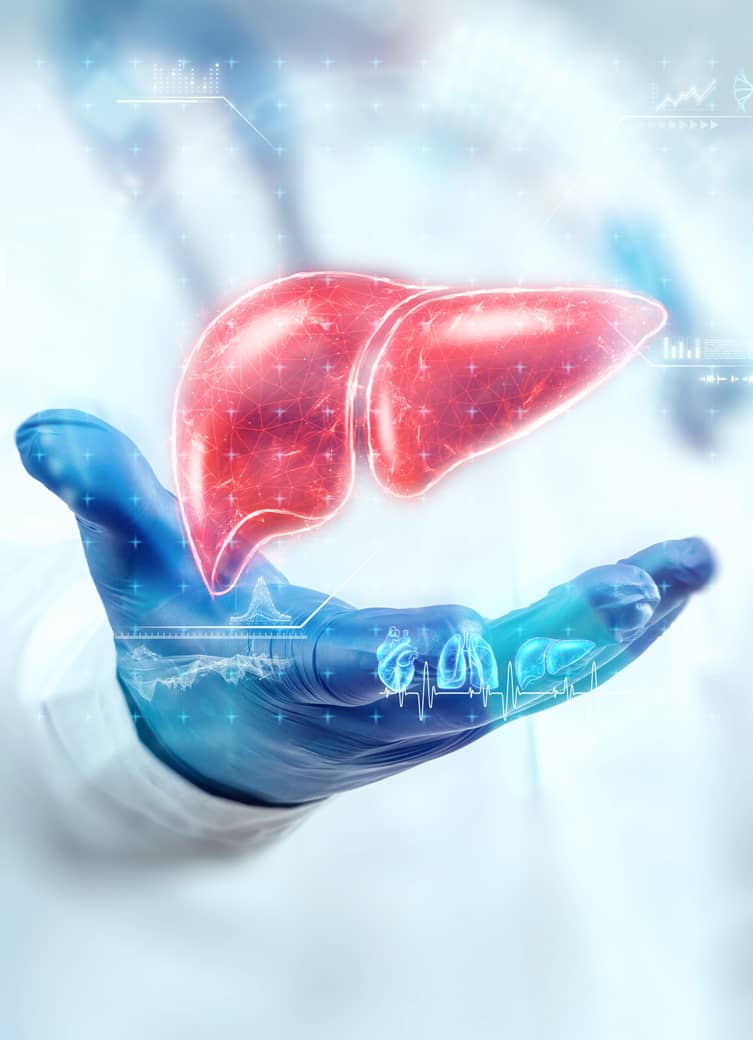In Bulgaria, according to official data to date, 26 patients need a liver transplant. According to unofficial data, however, there are many times more patients. Many of them are children.
When is a liver transplant necessary?
The main indication for liver transplantation is irreversible liver failure, regardless of the cause- complications of cirrhosis, cancer or metabolic disorders related to liver function that cause systemic disease. The main indications for liver transplantation in children are biliary atresia, cholestasis, metabolic disorders, malignancy and fulminant liver failure.
Who can be a liver donor?
In liver transplantation, compatibility of the blood group of the donor and the recipient is a sufficient condition. However, the health status of the donor is of great importance. It must be very good. The donor must not suffer from any serious chronic diseases, must not take any specific medication. His serological test for hepatitis must be negative. In addition, we assess the condition and volume of the liver. If everything meets the requirements and normal parameters, then the transplantation proceeds
What is the procedure for a liver transplant in Turkey?
Turkey is among the first countries in the world to transplant organs from living donors. In liver transplants, Turkey ranks second in the world after South Korea. Around 1,400 liver transplants are performed annually, which speaks to the expertise of Turkish transplant teams in these operations. Transplant centers in Turkey are subject to regular evaluation and the success rate should be above 85%. If it does not meet the mandatory requirements, the center is closed. The success rate of each transplant center in Turkey is public and accessible information. The Turkish Ministry of Health allows hospitals to accept only living donors for foreign patients. They are not eligible for cadaveric donor transplants. International patients need to bring their donors with proof of kinship, and in the absence of a kinship, a full screening is performed by the Health Ethics Committee. When the donor is not related to the patient, proof must be provided showing their relationship such as photographs, documents, etc. Pre-operative examinations of patients and donor candidates are carried out. The final decision is based on the results of medical examinations and tests to determine the eligibility of the candidate as an organ donor.
How is liver transplantation performed?
If the donor and the recipient meet all medical and non-medical requirements for liver transplantation, the surgery is scheduled within a short period of time. The surgery itself is performed on both patients at the same time, with part of the donor's liver transplanted into the recipient. This is probably one of the most difficult operations in surgery in general. Doctors have to preserve the health of the donor because they are effectively removing part of their liver, and reconstruction of the vessels and bile ducts is quite a complex process. The liver is the only organ in the human body that has the ability to regenerate. When a living donor donates part of their organ to save a loved one, the rest can resume function without serious complications. The donor's liver recovers over a period of 3 months and then functions normally
How long does the surgery last and what is the length of hospital stay?
The duration of the operation depends on the complexity of the case and can take from 6 to 12 hours. After the operation, the donor remains hospitalized for 4-5 days and is then discharged, but it is advisable to stay in Turkey for another week. After that he/she undergoes a check-up and if everything is fine he/she can travel and go home. The recipient remains in hospital for about 2-3 weeks after the intervention. He is then discharged but it is advisable to stay in Turkey for another 2 weeks. Tests are done every week and his condition is monitored. If everything develops normally the patient can go home as his follow-up continues and his examinations are checked regularly. Once a year the patient will need a follow-up examination to assess the condition. The patient should follow the medical advice of the doctors, strictly adhere to the prescribed regimen of immunosuppressive drugs and follow an appropriate diet and exercise regime.
Is it possible to get rejection of the newly adjudicated liver?
Transplantation is a complex surgical operation that does not end with the completion of the procedure. Complications such as infections or organ rejection can occur after surgery. The risk of organ rejection is greatest immediately after surgery. After the first year, this risk decreases, so do the doses of immunosuppressants taken. The drugs are stopped in only 20% of cases, and the remaining 80% of patients must continue taking them.
What is the life expectancy of a transplanted liver?
Most patients live more than 10 years after liver transplantation, and many patients live 20-30 years or more after transplantation. The most important thing after transplantation is the patient's ability to lead a normal life again- to work, to play sports, to travel, to be with family and friends.
Do liver transplants differ in children and adults?
Liver transplants in children are quite different from those in adults. The difference comes from the reasons why the transplant is needed in the first place. Children usually need a new liver because of congenital abnormalities, and the most common cause is biliary atresia. In addition, in children, narrow vessels, narrow bile ducts, and narrow space for the liver present additional challenges for surgeons. In Turkey, liver transplants in neonatal and pediatric patients are routinely performed with excellent results.
What should patients who need a liver transplant and are referred for treatment in Turkey do?
All patients in need of liver transplantation can contact the coordinators of ZIC "Medical Karaj". Thanks to our work, many patients have already received a chance for a new, full life after a liver transplant. Contact us to get detailed information and a free consultation for your specific case.



